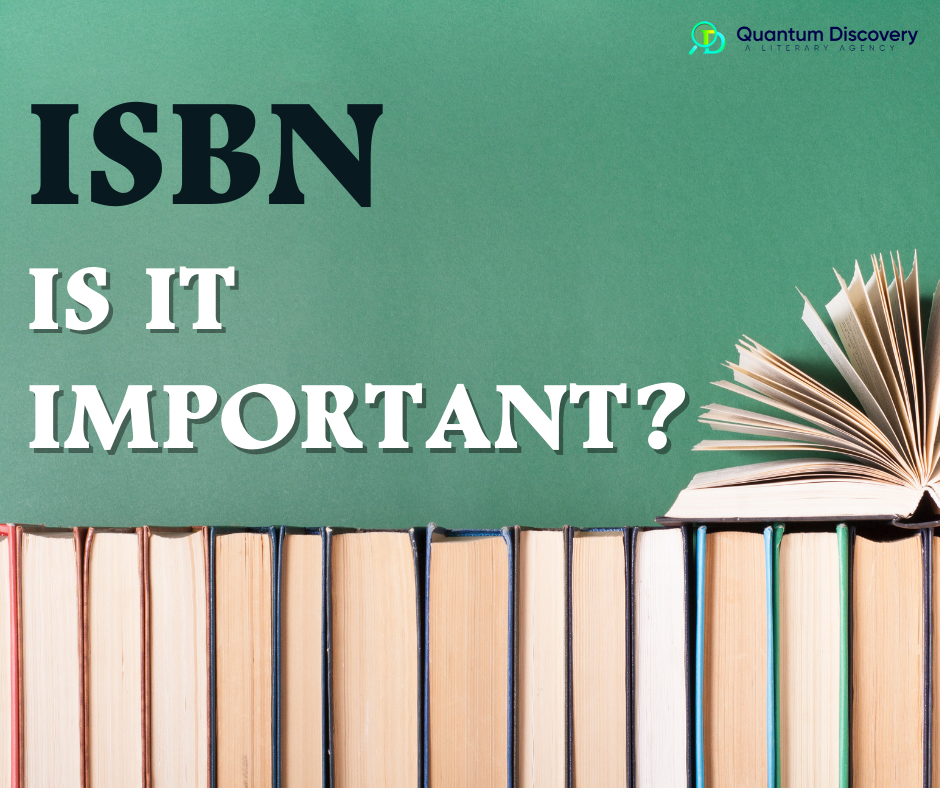A book’s fingerprint is called an ISBN (international standard book number). The lengthy list of numeric digits with hyphens is displayed on every book’s copyright page. Regardless of whether you print your book, sell it as an ebook, or sell both, every published book has its own unique ISBN.
Electronic, paperback and a hardback version of the same publication will all have their ISBNs since ISBNs are so specialized. Each edition of your book has a unique ISBN that cannot be removed.
How Does an ISBN Function?
An ISBN is assigned to every publication of a book except reprints. A book’s hardcover, paperback, and ebook editions will each have a unique ISBN. Before 2007, ISBNs had ten digits; as of January 1, 2007, ISBNs have 13 numbers.
The process of allocating an ISBN differs by nation. However, it is mainly influenced by the size of that country’s publishing market.
The 9-digit Standard Book Numbering (SBN) of 1966 served as its foundation. . The ISO released the new format in 1970 under the designation ISO 2108.
Privately published books can come without an ISBN. The International ISBN Agency, however, has the option of giving such works ISBNs. Periodical publications, including magazines, are given the International Standard Serial Number (ISSN). In contrast, musical works are given the International Standard Music Number (ISMN).
Except for reprints, every edition and version of a book has an ISBN. As a result, a book’s hardback, paperback, and ebook editions each have a unique ISBN. Before 2017, ISBNs had ten digits, but those published after that date have 13 numbers. While 13-digit ISBNs include five elements, 10-digit ISBNs only have four.
A single use of the International Standard Book Number (ISBN) is intended to identify a commercial book. Publishers can buy ISBNs from a partner of the International ISBN Agency. Aside from reprints, each special edition and publication version is given an ISBN.
The process for allocating an ISBN is country-specific. It differs from one nation to the next, depending on how large the publishing sector is in a given country. There are situations when privately released books don’t have an ISBN. On occasion, the International ISBN Agency assigns such books to their ISBNs.
A commercial system called the Standard Book Number (SBN) uses nine-digit code codes to identify books. British stationer and bookseller WHSmith announced plans to introduce a uniform numbering system for their books in 1965.
The system was created by Gordon Foster, an emeritus professor of statistics at Trinity College, Dublin, who they hired as a consultant to work on their behalf. The British SBN was modified for international usage by the Technical Committee on Documentation of the International Organization for Standardization (ISO).
The nine-digit ISBN code was still in use in the UK as late as 1974. ISO has designated the International ISBN Agency as the global registration authority for ISBN. ISO Technical Committee 46/Subcommittee 9 (TC 46/SC 9) is in charge of developing the ISBN Standard. The first reference in the ISO online facility is 1978.
As its name suggests, the ISBN system allows each book to have a specific number inside a standardized global database. The ISBN of your book is quite maybe the most crucial piece of information on your copyright page.
What details does the ISBN provide?
The tale of your book is revealed by its ISBN. It is a piece of the metadata for your book. Due to many published books, thirteen digits were added to the original ten-digit ISBN system in 2007.
The 13-digit ISBN, which stands for International Standard Book Number, is used to identify published books. Once given to a book, an ISBN can never be used again.
The ISBN is made up of five components
- Using the 978 or 979 prefixes as currently
- The registrant (publisher) element
- The registrant (publisher) element
- The aspects of publication (title and format)
- The check digit
Registering ISBNs falls under the purview of the International ISBN Agency, which has its headquarters in London.
An ISBN is crucial for ordering, sales reporting, and inventory control since it identifies the registrant, title, edition, and format of products used by publishers, bookshops, libraries, etc. Having an ISBN enhances the likelihood that people will find your book.
Most bookstores won’t display or sell any books that aren’t first listed in their warehouse database. For your book to get there, it needs a unique ISBN.
The ISBN offers no legal or copyright protection. However, using an ISBN to identify books is mandated by law in several nations.
